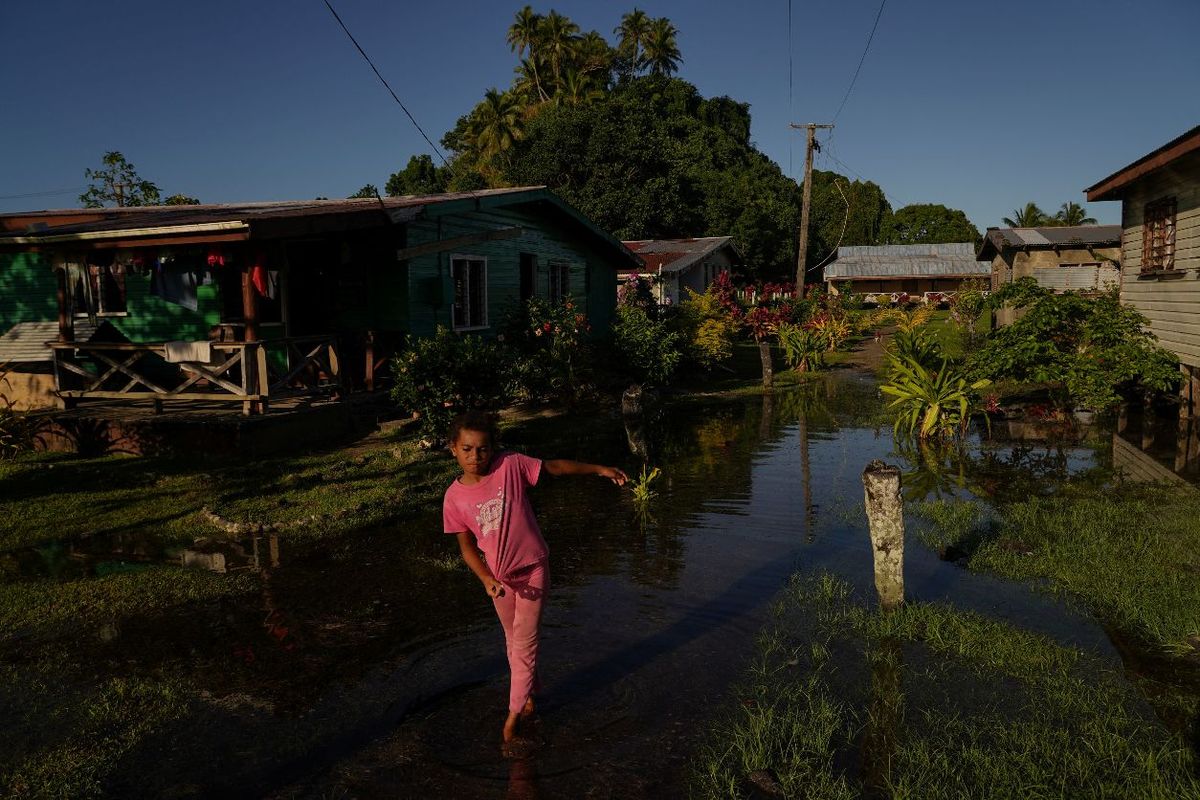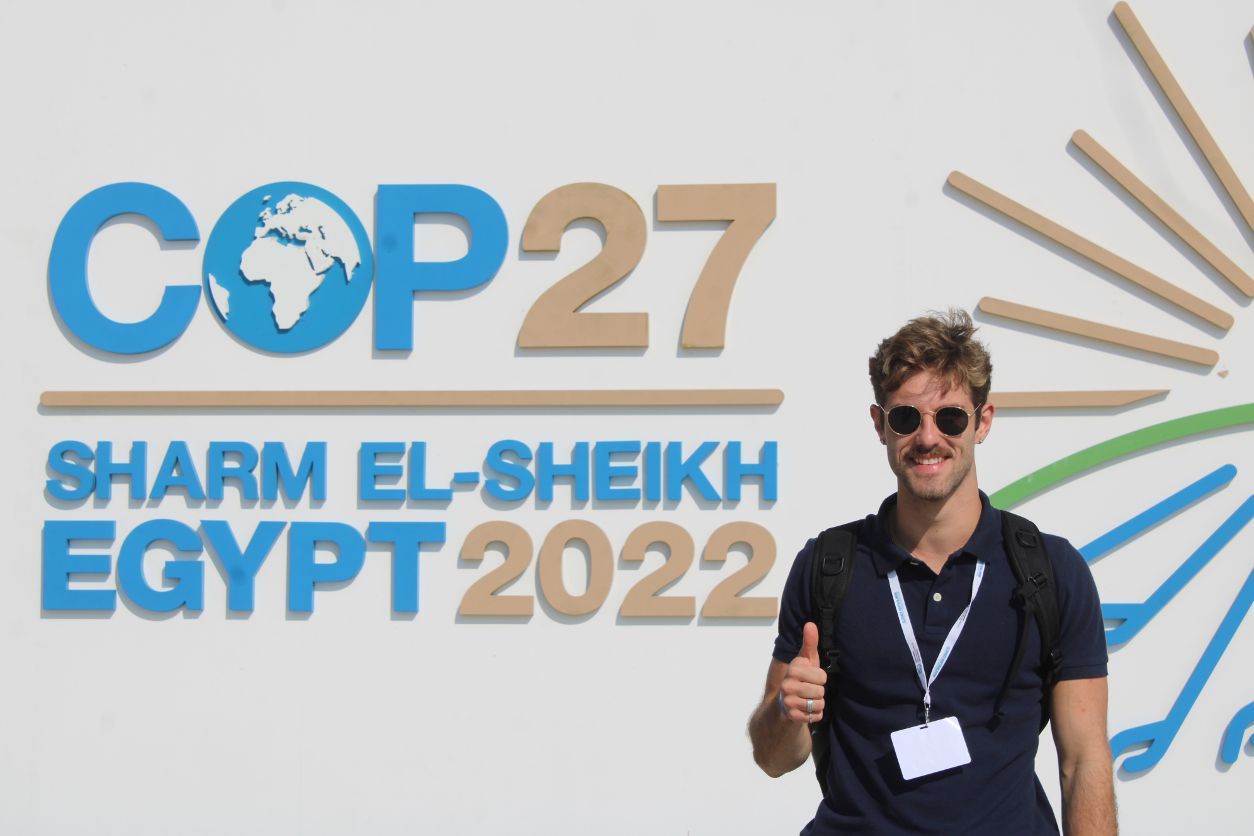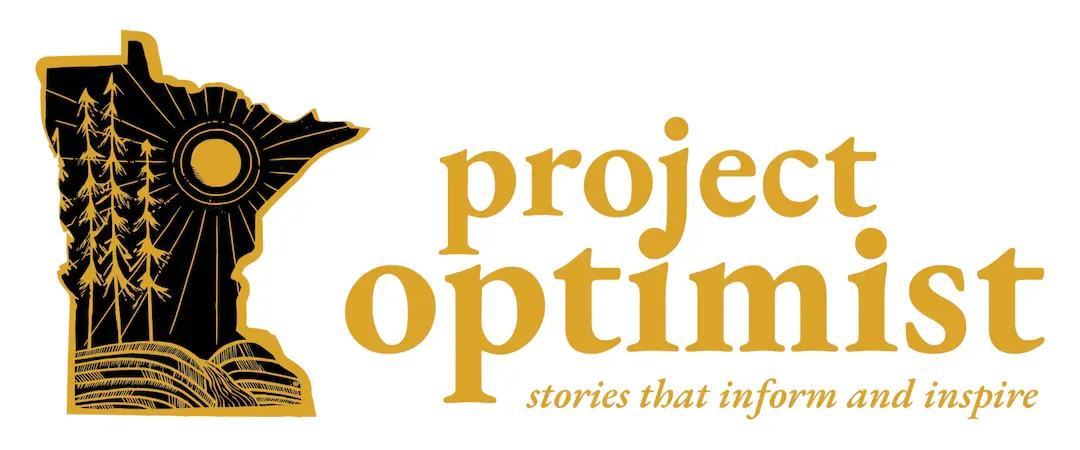COLUMN | 1 island nation moves to the metaverse as many weigh allies to stay above water
Relentless pushback from larger countries – like the United States and Australia – to meaningfully reduce their emissions has left 38 island nations looking to the future of what their nations may one day become.

This story is part of a grant-funded program at Project Optimist that involved basic journalism training for student and community reporters in central Minnesota. A group of 20 environmental studies students received the training, did field reporting at the U.N. Climate Change Conference and filed stories that highlight their research. Josh Nelson is a graduating senior at the College of St. Benedict and St. John’s University (originally from St. Paul, Minn.) with a major in environmental studies and a minor in political science.
Simon Kofe gave a speech to the United Nations climate conference knee-deep in water. Kofe, foreign minister of the island nation Tuvalu in the South Pacific, made a clear point during that November 2021 speech: “We are living the realities of climate change – sea level rise.”
One year later, Tuvalu announced its new government would be in the metaverse. I was shocked to learn this because it seems nearly impossible for a government to exist without occupying any physical land, however they are confident that this new government will be able to provide a stable new life for the people of Tuvalu who have and who are going to have to find a new place to live as their nation becomes submerged. The meta verse will use VR and AI recreation of the island of Tuvalu to let users experience the island and historic landmarks as they once were.
Tuvalu made this announcement in November of 2022 at the Conference of the Parties to the United Nations Framework Convention on Climate Change, a two-week-long conference where world leaders and activist groups work to solve climate change. Set in the coastal town of Sharm El-Sheikh, Egypt, thousands came to discuss and hopefully come to a conclusion on how to reduce our global emissions. I attended the second week of the conference, also called COP27.
I focused on learning about “Small Island Developing Nations” (SIDS) – their tactics and solutions to protecting their islands from climate change. SIDS are a group of island nations across the globe who have come together in an effort to plead their case to the global climate community, hoping they will be able to find solutions to save their homes from being swallowed by the seas.
A quick online search on SIDS will show you that they are not making the progress they desperately need to combat climate change. Relentless pushback from larger countries – like the United States and Australia – to meaningfully reduce their emissions has left 38 island nations looking to the future of what their nations may one day become.
Tuvalu has become the poster nation for SIDS’ fight.
I spoke with a representative of Tuvalu, Samuel Laloniu, who was hopeful that COP27 would offer change for the island nations, however he expressed worry about SIDS as a group. He and I talked about how Tuvalu may be the “leader” of SIDS, but that does not mean that the other 37 nations follow them blindly. Mr. Laloniu told me that a few months prior to the conference, SIDS had its own meeting about what the political leaders wanted to see accomplished at the COP27 and how to accomplish their goals. Unfortunately, in the first week of the two-week conference, two members of SIDS broke away from their group's agreement to pursue new agreements that only benefited them. SIDS had not signed any binding agreements among each other, but this sort of action created internal problems among the nations and potentially gave other nations the same idea, Laloniu said.
Laloniu has been to the last five COP conferences, and he says this is nothing new.
At the beginning of the conference, all the SIDS come together as one, ready to make a change that benefits them all, he said. As the conference begins and talks between nations occur, however, the idea of one strong group breaks down and each nation is left to fend for itself, Laloniu explained to me. As Laloniu and I continued to talk, he told me he is worried about who is going to step up and help island nations.
In an ideal world, it would be Australia, a close neighbor and a giant polluter, who would be offering aid to the island nations affected by its own pollution. Australia has done little to reduce their emissions, however, completely avoiding the topic when Pacific Islanders and Australian leaders met back in 2019. They have not changed since.
Without the support of Australia, Laloniu said he is concerned for what will happen when China offers its support to suffering Pacific Island nations.
Laloniu had no doubt there would be some members of SIDS who would accept China’s support. China would want something in return for its support. The world has already seen China’s aggression towards Taiwan, as well as China’s attempt to build a military air base on another island in the Pacific.
A future Conference of the Parties is supposed to be a joint conference hosted by Australia and Pacific Island nations. Laloniu, and other representatives of SIDS I talked to at the conference, said they would not agree to a joint conference until Australia appropriately addresses its emissions. Which really means Australia needs to start drastically reducing its emissions. Australia falls into a grouping of mostly global north countries that, combined, produce 90% of the global emissions.
The questions remain: Will Australia agree to Pacific Island nations demands? Or will China reach out to more nations in hopes of gaining more strategic power?
This column was originally published in the Project Optimist newsletter on May 3, 2023.

